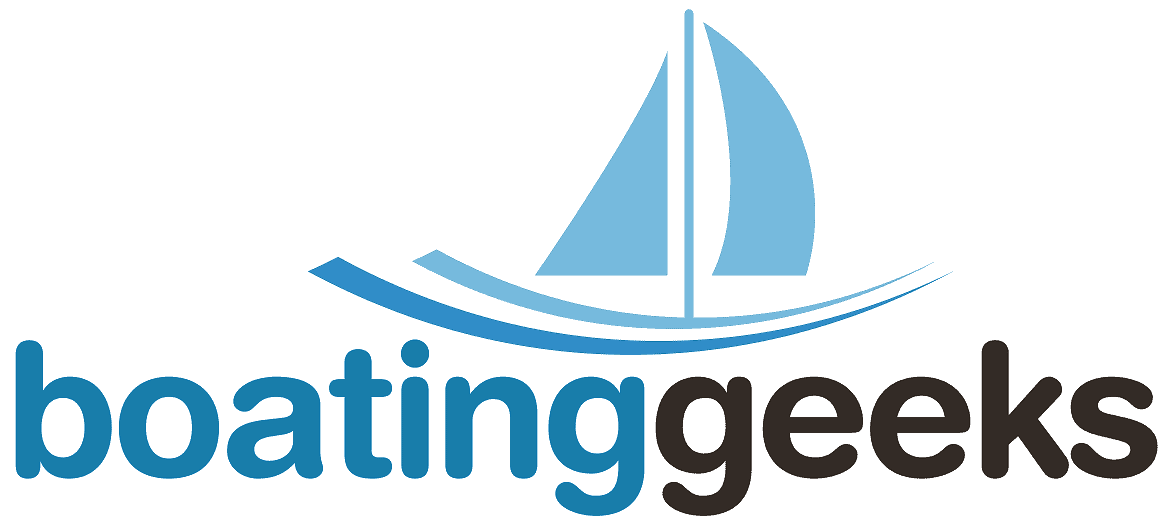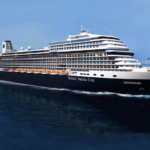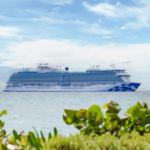Owning a boat is like owning a car. You can’t just buy a boat and ignore legal requirements. Like owning a car, having a boat also requires registration, operating precautions, the age requirement to operate, and a license to operate. In this post, we’ll address boating insurance in the great state of Iowa. Is boat insurance required in Iowa? Let’s find out!
Boat insurance is not required in Iowa. It is a good idea, however, to get boat insurance because it doesn’t cost much ($300 to $500 per year, on average) and will give you greater peace of mind. You should get your Boater Education Certification before getting insurance.
Read on to learn more about boat insurance requirements for the great state of Iowa and other important tips.
Complete Boater Education Certification Before Getting Insurance
There’s a mandatory law required for most states, including Iowa, where boaters are required to get what’s called Boater’s Education Certification. Once you get certified, you get a Boater’s Education Card (sometimes called a Boater’s License). Once certified, you can then get your insurance. To complete the certification, you have three options:
1. Internet
The first option to get certified is to do so online. After finishing the course and passing the online test, you will then get the Boater Education Certificate from the Iowa Department of Natural Resources (IDNR) via mail. Take your test here: www.boat-ed.com/ia.
2. Classroom
You will learn about the boating requirements with other students in a classroom with an experienced instructor. You can find a classroom course in your area by calling IDNR at 515-281-5918 or visiting their website at www.iowadnr.gov.
3. Home Study
If you prefer home study, you can contact the Iowa Department of Natural Resources at 515-281-5918 or visit www.iowadnr.gov.
Now that you have an idea about Boater Education Certification, let’s proceed to boat insurance before discussing other things to consider when owning a boat.
Is Boat Insurance Required in Iowa?
Is boat insurance required in Iowa? Iowa law does not require you to acquire an insurance policy, but it is a good idea to consider getting one.
Why would boaters want to have an insurance policy? Because it will protect their boat and finances with just a fairly small amount of money. It will give much greater peace of mind while out on the water. Wouldn’t you want that?
Who Can Operate a Boat?
It is mandatory in Iowa that a person between 12 and 18 years old have an Iowa Watercraft Safety Certificate to operate a boat that is above 10hp on state waters. Therefore, an adult should not permit anyone in this age group to operate the boat if they do not have a legal watercraft safety certificate.
State Guarded Waters
Boats must comply with the state provisions of these waters:
- Coastal waters
- The Great Lakes
- Territorial seas
- Waters that are 2 miles wide or wider and are linked directly to one of the above-mentioned waters
Iowa Visitor
If you are not from Iowa and want to have a boating adventure in their area of responsibility, you still must conform to Iowa’s boating safety requisites. But if you can present a NASBLA-approved boating safety course from your own state, such as a boating license, then you can lawfully operate your boat in the state of Iowa.
Here’s a brief video showing the Iowa DNR boat patrol in action:
Age Limit
An individual under 12 years old is strictly prohibited from operating a boat that is above 10hp – except if supervised by an eligible adult qualified to operate a boat (18 years old and above).
It is mandatory for children under 13 years old to always wear a U.S. Coast Guard Approved PFD while the boat is in operation – except if they are in a bounded cabin, below deck, or on a commercial boat with 25 people or more capacity.
Boat Registration
Although it is not compulsory to get boat insurance in Iowa, it is a requirement to have an Iowa Registration Certificate and registration decals to operate your boat legally within the public waters of Iowa.
Your registration certificate must be on the boat all the time and should always be available for inspection by an enforcement officer every time you operate your boat.
Exemption to Registration
- Inflatable boats that are 7ft or less in length
- Canoes and kayaks that are 13ft or less in length and those without a motor
- Boats that are legally registered in a different state
- Use of Iowa public waters for 60 days or less within a year (one calendar year)
A Registration Certificate is usable for three years only and expires on April 30th of the last calendar year of the registration period. Boat owners that have been previously registered may be mailed a renewal notification to their home.
Illegal Operations That Can Make Boat Insurance Higher
These risky operating practices are illegal in Iowa, and if you have been caught and ticketed for these, it can make your insurance policy higher.
1. Careless or Neglectful Operation of a boat or the irresponsible operation of water skis, surfboard, or related scheme, functioning in a way that causes jeopardy to the life, limb, or belongings of any individual.
2. Incorrect Speed or Distance (most rampant offense) is not keeping a correct speed or distance while operating a boat.
It is particularly unlawful to operate a boat at:
- Over the “slow, no wake speed*” (the speed that produces a wake) in any area with a sign displayed “no wake zone.”
- Over 5 mph in 100 ft of another boat that is moving at 5 mph or less.
- Over 5 mph in 50 ft of another boat that is moving beyond 5 mph.
- Over 10 mph except vision is clear for at least 200 ft ahead.
- Over 10 mph in 300 ft of coastline (except in specially zoned regions) on any provincial lake or state impoundment.
- Over 25 mph between 1/2 hour after sunset and sunrise on any lake in Dickinson County.
- Over 10 mph between 1 hour after sunset and 1 hour before sunrise on Lake Delhi.
*** “Slow, No Wake Speed” means a speed at which the boat does not form a wake. A “Wake” means any flow of water produced by a boat that will harmfully affect the usual structures of the coastline.
3. Overcapacity is packing the boat with extra passengers than the allowable number of capacity logged on the Registration Certificate. It is prohibited to operate a boat if its capacity would be outstripped by the people in the boat and the people tugged on water skis, surfboards, or related schemes.
4. Overriding is operating the boat over the limit of the suggested carrying horsepower presented in the capacity plate attached by the boat builder.
5. Meddling with Search and Rescue is powering a boat in zones where search-and-rescue actions are being operated or in a place that is distressed by a natural disaster, except if sanctioned to be in the area by the OIC of the operation.
If permitted to cross the threshold, you must drive your boat at a “slow, no wake speed” and keep clear of all the boats involved in the search-and-rescue operation.
6. Unattended Boat is abandoning an unattended boat attached to a port that is situated proximately next to a community boat starting ramp or to a port that is displayed for loading and unloading.
It is also prohibited to neglect a boat that is attached away from the coastline and unattended except if it is anchored to an allowed anchorage buoy. Licenses or certifications are essential for using an anchorage buoy.
Checklist Before Boating to Ensure Safety and Prevent Accidents
To stay safe on the water and ensure you don’t get any accidents that can affect your insurance, it is helpful to have a checklist. It is always best to check the following before driving your boat to avoid any problem while you’re having a good time boating on the Iowa waters.
Prevention is key to avoiding an accident or other issues. If you are at fault for an accident or damage, then that can lead to higher insurance premiums.
- Check the weather condition.
- Ensure that all the lights and steering controls are properly working.
- Make sure that there are no fuel or oil leaks and cracks on the boat. Check the lines, tanks, engine, and carburetor section.
- Make sure that the hose clamp, engine battery, bilge plug are replaced, charged, and secured.
- Remove the water on the engine section. Ensure that the ignition safety switch and the wrist lanyard are in the proper place as well.
- Life jackets should be in good shape, and you have enough for the number of people on board. Also, you have to ensure that they have a proper fit.
Conclusion – Is Boat Insurance Required in Iowa?
Is boat insurance required in Iowa? The answer is NO, but you must be responsible enough to safeguard your boat as a boat owner. You must have the initiative to know what is needed, what is prohibited, and what are the things to consider when owning a boat. You are accountable for any damage or injury brought about by the careless operation of your boat.
If you do not live in Iowa and want to sail your boat in their public water, you should know first the boating rules and regulations of Iowa to avoid any hassle when you are already in their public water or area of responsibility. You should also respect and abide by their respective boating laws.
Remember also these state guarded waters:
- Coastal waters
- The Great Lakes
- Territorial seas
- Waters that are 2 miles wide or wider and are linked directly to one of the above-mentioned waters
These are the top 3 offenses by Iowa boaters. Don’t commit them to avoid higher insurance premiums.
- Several registration offenses
- Insufficient life jackets
- Incorrect speed or distance
These are the top 3 boating accidents in Iowa. We hope you do not get involved in any of these, which also could raise your insurance cost if caught:
- Boat slamming into an object while sailing
- Falling of water-skier, tuber, and knee boarder
- Over-capacity boat sinking
For registration, certificates, and other boating inquiries and emergencies, do not hesitate to contact the Iowa Department of Natural Resources via phone at 515-281-5918, or you visit their website at www.iowadnr.gov.
Related reading:
Is Boat Insurance Required in Pennsylvania?









